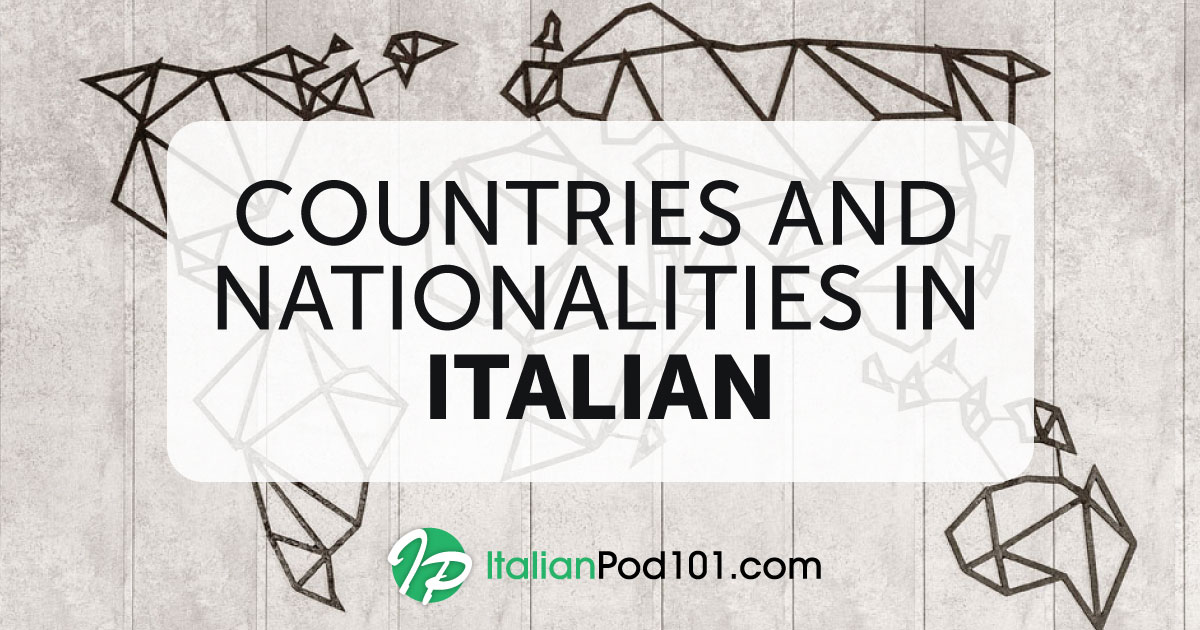Italians are known for expressing their emotions and for being passionate, a little loud, and definitely creative. So, it’s no surprise that when Italians get angry—and they do get angry a lot—they will have a passionate, loud, and creative way to express their feelings.
We know that angry people tend to express themselves with profanities and insults, but we’ll avoid parolacce (“curse words” ) and will give you instead a totally acceptable list of common Italian angry phrases and expressions useful for any occasion. Let’s start with learning how to say “angry” in the Italian language.
- Sono arrabbiato! (“I am angry!” )
- Angry Orders
- Angry Warnings in Italian
- Angry Questions and Blames in Italian
- Getting Emotional in Italian
- Saying it with Animals
- Culture: A Gesture is Worth a Thousand (Angry) Words
- Calmati! (“Calm Down!” ) A Brief Guide on How to Relax in Italian
- Don’t Make Me Come Over There and Teach You a Lesson!
1. Sono arrabbiato! (“I am angry!” )
The Italian word for “anger” is rabbia, from which comes the adjective arrabbiato (“angry” ). But let’s say that you’re really angry, but you don’t want to use any profanity. You can use the expression Sono arrabbiato nero! (“I am black angry!” ) when you’re soooo angry that you become black in the face.
There are other Italian words for “angry,” though. For example, you can use the phrase Sono incavolato, which literally refers to the cavolo (“cabbage” ), but is just a “clean” alternative to a curse word that also starts with Sono inc…(beep!).
You’ll hear these “clean” versions of parolacce (“swear words” ) all the time, from children and youngsters who don’t want to get in trouble with the adults to people in formal situations where profanities and curse words wouldn’t be appropriate. You’ll often hear an angry Italian guy (or lady) using these words, and you’ll see that they can often be really funny.
2. Angry Orders
Most of the time, we get angry because someone else is doing something annoying and they won’t stop when we ask them to.
A- Shut up!
This is the most widely used angry order. You say it to those chiacchieroni (“blabberers” ) who never stay quiet.
- Zitto! This is the most common way to say it, and is the short version of Stai zitto! (“Be quiet!” ).
- Taci! This is the imperative form of the verb tacere. Of course, if you’re giving the order to a crowd of loud people, you’ll change the verb to tacete!
- Chiudi il becco! This is an older way of saying the same thing, but it’s still evergreen. Literally, it means “shut your beak” and is one of the angry Italian insults that give someone an animal characteristic. And we’ll see that there are many more examples of phrases like this throughout the article.
B- Stop!
There are so many things that make us angry…and often, we just need a generic order to stop whatever thing is driving us mad. And angry Italians have the perfect word for it:
- Basta! It literally means “enough,” and you can use it by itself or with a noun:
Basta ridere! (“Enough/Stop laughing!” )
Basta con tutta questa confusione! (“Enough/Stop with all this mess!” ) - Finiscila! This phrase literally means “end it,” as finisci is the imperative form of the verb finire (“to end” / “to finish” ). The pronoun la stands for whatever thing (cosa) is annoying us.
- Smettila! This phrase is constructed exactly like the previous one, with the verb smettere (“to quit” ).
- Dacci un taglio! This is another colorful way to tell somebody to cut it off (literally: “give it a cut” ).
Basta! (“Stop” )
C- Leave me alone!
When there’s loud people around you doing things they’re not supposed to do, the only thing you want is to be left alone, or as angry Italians say it:
- Lasciami in pace! Literally, it means “let me in peace,” and it makes it very clear to steer away and give the speaker some peace of mind.
- Togliti/Levati dai piedi! This angry phrase literally means “get out of my feet,” and it perfectly depicts a situation where somebody is constantly around you, literally “at your feet,” that you want to get rid of.
- Vattene! It literally means “go away from this place” and it’s the imperative form of the verb andarsene (a reflexive + ne pronoun combination). In the plural form, it becomes Andatevene! And if you’re really arrabbiato nero (“madly angry” ) you can add a few unpleasant places where you want to send them to. For this, check the next paragraph.
D- Go to hell!
When everything else fails, it’s time to send the person bothering you really, really, really far away. Maybe even into another realm…
- Vai all’inferno! (“Go to hell!” ) Not a very nice thing to say to anybody, but if you’ve been bad, that’s where you deserve to go, after all…
- Vai al diavolo! (“Go to the devil!” ) This is another variation of the phrase above.
- Vai a quel paese! This one literally means “go to that village!” It means that you order the person you’re angry with to go to an unidentified, faraway place.
Vai all’inferno! (“Go to hell!” )
Did you notice that most of the examples above, since they’re orders, have the verb in the imperative form? You might want to review the imperative, especially if you want to know how to say angry phrases in Italian.
3. Angry Warnings in Italian
It’s such a cliché…but you don’t need to watch many mobster movies to know that angry Italians can be very intimidating, without even raising their voice! It’s true that sometimes just a mean look is enough to make you stop what you’re doing. But if you also add the right angry Italian phrases, you can be sure to achieve your intent.
- Non mi fare incavolare/incacchiare! (“Do not make me angry!” ) Here we are again with these euphemisms (an expression substituting another that’s considered too vulgar, in this case).
- Mi stai facendo perdere la pazienza! (“You are making me lose my patience!” ) This is what happens when you can’t take it anymore.
- Non me lo fare ripetere due volte/un’altra volta! (“Don’t make me repeat it twice/once more!” )
- Questa è l’ultima volta che te lo dico! (“This is the last time that I tell you!” ) This is just a variation of the angry phrase above.
- Uomo avvisato, mezzo salvato! This common Italian motto literally means “Warned man is half saved,” and it’s the equivalent to the English “Forewarned is forearmed!” But with the right angry intonation, rather than a bit of advice, it becomes a warning that it’s the last chance to stay out of trouble.
- Questa è la goccia che fa traboccare il vaso! And since we’re talking about mottos, another common way to warn people that you’re mighty angry is the image of “the drop that makes the vase overflow,” which is the equivalent of the English “the straw that broke the camel’s back!” And you know that when the thing that’s overflowing is anger, you better run and take cover!
- Attento a come parli! This is literally translated as “Be careful how you talk,” which really means “Watch your mouth!”
4. Angry Questions and Blames in Italian
Questioning somebody’s behavior and actions are the first step you take when you’re angry. Here’s a list of angry questions and expressions in Italian for you to practice when you’ve lost your cool:
- Ma che dici? (“What are you talking about?” ) This angry expression often goes together with a specific gesture that we’ll see in the following chapters. Or do you already know it?
- Ma che diavolo/cavolo/cacchio dici/fai? (What the hell are you saying/doing?” ) This is just an angrier variation of the previous sentence, used with words that substitute the c… (beep!) curse word.
- Chi ti credi di essere? (“Who do you think you are?” ) This phrase comes in handy when you want to rub in somebody’s face that they’re inferior to you. Variations of this are:
- Non sai con chi stai parlando… (“You don’t know who you are talking to…” )
- Non sai con chi hai a che fare…. (“You don’t know with whom you are dealing…” )
- Sei pazzo? Sei scemo? (“Are you crazy? Are you dumb?” ) Nothing gives more pleasure—when you’re angry—than to question somebody’s sanity or intelligence. This is also often accompanied by a specific gesture. See more about this below.
- Hai fatto casino! (“You messed up!” ) The word casino has various meanings (none of which is a small house, by the way). One of them is “brothel” and another is “confusion” or “mess,” which is probably a slang word derived from the first one. Casino (and its derivatives casinista, incasinato, etc.) used to be considered a curse word in the past, but nowadays it’s so common that you can safely say it. Even in front of somebody’s nonna (“grandmother” ).
- Non sono fatti tuoi! (“It’s none of your business!” ) Notice how fatti (“facts” ) can have, in this context, the same meaning as “affairs” or “business.” You can also use the same expression to say “Mind your own business!” with the phrase Fatti i fatti tuoi! Notice how, in Italian, you don’t “mind” your business, but rather you “do” your business. And fatti is the imperative form (second person singular) of the verb fare (“to do” ).
5. Getting Emotional in Italian
Let’s face it. We all get angry. And one thing that definitely helps to cope with anger, is to make sure your emotions are known. Here’s how you can show your disappointment, anger, impatience, and the whole range of angry feelings in Italian. And don’t forget that it’s also very important to know how to say sorry!
- Non ne posso più! (“I can’t stand/take it anymore!” ) This is a rather bizarre construction, to say that you can’t stand something, as it’s only formed by the verb potere (“can,” “being able to” ) and the ne pronoun (“of it,” “about it” ). It is perfect, though, as a generic Italian expression of frustration.
Non ne posso più… ho bisogno di un mese di ferie!
“I can’t take it anymore…I need a month-long vacation!” - Non ti sopporto più! (“I can’t stand you anymore!” ) This is the perfect angry phrase if you want to break up with your Italian boyfriend/girlfriend. But it’s also an alternative (or possible addition) to the phrase above when you want to specify what you can’t stand:
Non ti sopporto più! Me ne vado.
“I can’t stand you anymore! I’m leaving.” - Ne ho piene le tasche! (“I’ve had it!” ) Literally, it means “I have my pockets full of that,” but “pockets” is really just a euphemism for male testicles. Another very common way Italians refer to being sick and tired of someone or something is the expression Rompere le scatole (“Break the boxes” ), where you already guessed what scatole stands for in this case.
Basta con tutto questo casino! Mi avete rotto le scatole!
“Enough with all this mess! I’ve had it with you!”Ne ho piene le tasche di tutto questo casino!
“I’ve had enough of all this mess!” - Che schifo! (“How/That’s disgusting!” ) This is one of the most common Italian phrases when angry, and it’s a very encompassing word that Italians use all the time to express a range of negative emotions. It’s the perfect expression if you don’t like a dish (although it’s not polite at all for the cook, and you might have to face an angry Italian woman), if you see something bad, dirty, or smelly, or for anything else you dislike. It can also be used as a verb: mi fa schifo (“it disgusts me” ), a reflexive verb that can be considered the opposite of mi piace (“I like it” ).
Prima mi piaceva ma adesso mi fa schifo!
“I used to like it, but now it disgusts me!”
Che schifo! (“Disgusting!” )
- Che stress! (“What a stress!” ) “Stress” isn’t an Italian word, but it’s been so commonly used for many years that it’s officially entered the Italian dictionary. So have its derivatives stressare, stressarsi, and stressato (“to stress someone, to get stressed, stressed” ).
Domani ho gli esami: che stress!
“Tomorrow I have exams: what a stress!” - Che nervi! Literally, this can be translated as “What nerves!” Nervi is a synonym for “anger,” so as to mean “I am so angry!” A variation of this is Che nervoso!
- Che palle! This is my personal favorite and, although it’s a bit more vulgar than the other examples, it’s mostly accepted nowadays. Palle (“balls” ) is still another word for testicles, but it also conveys other meanings, such as boredom, annoyance, or intolerance:
Questo film è noioso e dura tre ore. Che palle!
“This movie is boring and it lasts three hours. What a bore!”Parli troppo! Che palle!
“You talk too much! What a nuisance!”
For many other ways to talk about your emotions, check out this catalog of negative emotions. Learn how to say that you’re sad in Italian and much more!
6. Saying it with Animals
Maybe it’s due to the Italian agricultural background, or maybe it comes from our ancient ancestors, but the fact is that angry words in Italian culture are often animal comparisons. Here are just a few examples of animal insults in the Italian language:
- Siete un branco di pecore! (“You are a herd of sheep!” ) This angry phrase is intended to insult people who have no will of their own and blindly follow orders. Pecoroni (“big sheep” ) has the same meaning.
- Essere un maiale/porco (“To be a pig” ) This is an insult generally addressed to males, and it means “to be dirty, lewd, obscene.” The word porco (“pig” ) is also used in some generic expressions of anger: porco mondo! (“cursed world!” ) and porca miseria! (“cursed misery!” ).
- Essere un asino/ciuccio/somaro (“To be a donkey” ) Asino/ciuccio/somaro are three synonyms for the same animal: the donkey, which is considered to be very ignorant, especially when referred to in a school setting. It’s not by chance that in the famous book, Pinocchio and the other kids that always skipped school turned into donkeys, remember?
- Essere un verme (“To be a worm” ) For some reason, this little invertebrate has become used as an insult against a cowardly, vile, and morally repugnant person.
- Figlio di un cane! (“Son of a dog!” ) Although the dog is most people’s favorite pet and is considered to be our best friend, in Roman times, Christians used to call people of different religious beliefs who betrayed them “dogs.” From those times comes this angry insult, which means “You are a traitor!”
7. Culture: A Gesture is Worth a Thousand (Angry) Words
Italians are famous for gesticulating a lot to emphasize what they’re saying. In angry situations, looks, hands, arms, and the entirety of body language help stress the extent of our feelings. Here’s what you need to know to use gestures instead of angry Italian words.
- Ma che dici? (“What are you talking about?” ) When you want to question someone’s intelligence, there’s no better way than to put your fingertips together and move your hand back and forth a couple of times.
- Sei pazzo! (“You are nuts!” ) To question someone’s sanity, you just need to touch your temple with your forefinger and tap on it a few times (or turn the finger clockwise).
- Me ne frego! (“Who cares?” ) This angry expression shows absolute indifference to a situation. It’s made with the reflexive verb fregarsene (combined with the pronoun ne). Not an easy construction, but Chissenefrega…? (the impersonal way to say “Who cares?” ) will be much easier once you can say the same with a gesture. Just rub your fingers under your chin while looking at the person in front of you with indifference and contempt.
- Ti faccio un mazzo così! (“I’ll kick your butt!” ) Alas, sometimes you’re so angry that all communication fails and you need to take action! Or at least threaten to take action. Or even better, you just make this gesture threatening to take action. Just make an L with your thumbs and forefingers with both hands and form a circle. But be careful, as this gesture is rude and aggressive. But it also means “you are very lucky” because, for some reason, in Italian, butts are synonymous with luck…
- Mi fai incavolare! (“You drive me nuts!” ) By now, you should know everything about the use of this cabbage euphemism. What you probably don’t know is that you can say the same thing just by biting your upper and/or your lower lip.
- Cornuto! (“Cuckold!” ) It literally means “with horns” and it’s the worst insult that will make any Italian man very angry (especially in the South), as it means that their partner is being unfaithful. So, you might actually not want to use it with that meaning. On the other hand, it’s often used as a generic insult, and it’s not uncommon to see people in traffic waving their fists with the index and little finger raised as to imitate the horns of a bull. Take, for example, the iconic scene from the movie Il Sorpasso.
8. Calmati! (“Calm Down!” ) A Brief Guide on How to Relax in Italian
Using Italian phrases when angry is perfect for getting your point across to fellow Italian speakers. But one of the most important things to remember about being angry is that right after, we need to calm down and find our cool again.
Italians are masters in this art. Here are a few suggestions on what to do when you’re angry.
- Canta che ti passa! (“Sing and it will go away!” ) This is a very old Italian motto and it reflects the concept that Italians love music and singing. And there’s nothing better than singing a song to regain your good mood.
- Fatti due passi. (Literally, “make two steps,” meaning to take a walk.) When you walk, you stimulate your brain to release endorphins—a neurochemical that makes you feel instantly better. It helps overcome stress and pain, and it can even make you feel euphoric.
- Fai un bel respiro! (“Take a deep breath!” ) A well-known remedy for overcoming anger is to breathe deeply a couple of times and let the oxygen do its thing as a natural tranquilizer. This is especially useful if you use it as a method before saying or doing something that you might regret…
- L’arte di chiedere scusa. (“The art of saying sorry.” ) Last, but definitely not least, the best thing to do after having burst in anger at somebody is to say you’re sorry. And mean it. Here’s how to say sorry in Italian:
- Scusa. (“Sorry.” ) Notice how, in Italian, scusa means both “sorry” and “excuse me.”
- Scusami. (“Forgive me.” )
- Ti chiedo scusa/perdono. (“I ask for your forgiveness.” )
- Perdonami. (“Forgive me.” )
- Ti prometto che non lo faccio più. (“I promise I won’t do it again.” )
9. Don’t Make Me Come Over There and Teach You a Lesson!
Sorry, I got carried away with all these Italian angry phrases, and I just meant an Italian lesson… 😉 But really, in this guide we gave you all the tools you need to express your feelings, even if they’re angry feelings.
Did you like learning about angry expressions in Italian? Then drop us a comment below and let us know (but no parolacce, please!).
Keep exploring all of your emotions by diving deep into ItalianPod101.com, where you’ll be able to find videos, audio recordings, and all the answers to your questions related to Italian grammar and vocabulary.
And don’t forget to check out all of our free resources!
Happy Italian learning!


















